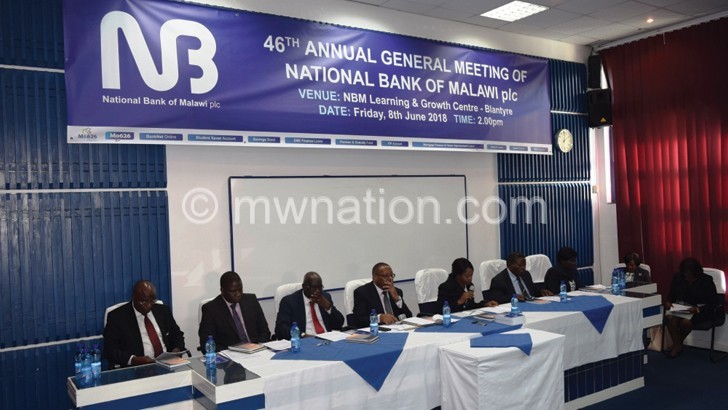Bank outlines economic risks
National Bank of Malawi (NBM) plc has said gains accrued in 2017 arising from low food prices are in danger of being eroded, with maize prices increasing by 40 percent thus far in 2018.
NBM chief executive officer Macfussy Kawawa said in an interview on Friday in Blantyre the upward pressure in non-food inflation poses upside risks to inflation.
Non-food inflation has declined to 7.1 percent from 20 percent at the beginning of 2017.

He said: “This upward pressure in non-food inflation is likely to intensify with the approved 24 percent electricity tariff hike coupled with pressure to increase liquid petroleum product prices with the adoption of more expensive premium environmentally friendly liquid fuel products and the inclusion of Jet-A1 fuel in the fuel price stabilisation fund.
“In spite of the above, the bank is well positioned to deal with any challenges and exploit the opportunities that may arise.”
In the recent months, maize prices have been on the increase, selling at an average of K7 000 due to speculation in the wake of the looming hunger because of the combined effects of dry spell and fall army worms.
According to the second round agricultural production estimate survey, maize output is estimated to have declined by 19.4 percent from 3.5 million metric tons (MT) in the 2016/17 agricultural season to 2.8 million MT in the 2017/18 agricultural season.
Maize is the country’s staple grain that traditionally impacts the country’s economy given its skewed influence in determining inflation rates as it accounts for 45.2 percent in the consumer price index (CPI), an aggregate basket of goods and services for computing inflation.
NBM plc board chairperson George Partridge said the downside risks for growth remain power deficit and weather related shocks as the economy is dependent on rain-fed agriculture.
He, however, said with its in-built flexibility and agility, a strong capital and human resource base, the bank expects another year of strong performance and is poised to remain on a sustained growth path.
The bank registered a growth of 15 percent in the group profit after tax from K16.6 billion to K19.15 billion and achieved an overall growth of 19 percent.





